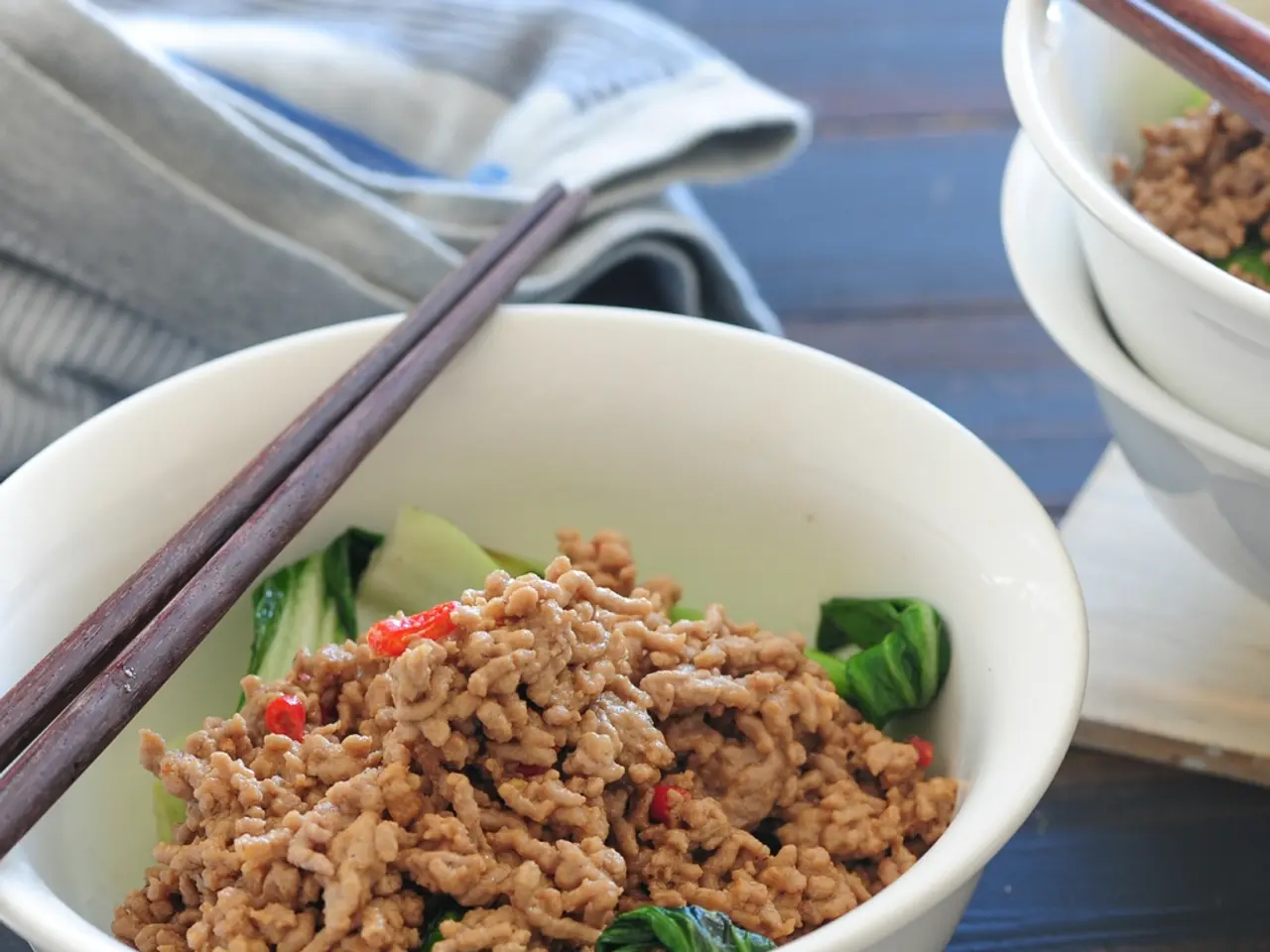Intestinal Inflammation Augmentations: Signs to Watch Out For
Ulcerative colitis (UC) is a type of chronic inflammatory bowel disease (IBD), causing inflammation and ulcers in the large intestine. While the exact cause of UC is unknown, it is thought to be an autoimmune condition.
Living with UC can be challenging, but there are several strategies to manage symptoms and prevent flare-ups. Regular doctor visits are crucial to monitor and manage UC symptoms, flares, and triggers.
Flare-ups of UC are periods when bowel inflammation worsens. To minimise these, tips include soothing stress through yoga, mindfulness, and regular exercise, taking prescription medication, and adjusting one's diet. Specific triggers for UC flare-ups can include consuming high-sugar foods and drinks, stress, an imbalanced acid-base body status (hyperacidity), certain medications, dehydration, lack of or excessive physical activity, and possibly stimulants or rapid weight loss.
Tracking food triggers in a food diary can help manage UC flare-ups. Reducing fiber intake may also help, but it's important to consult a doctor before making significant changes to your diet.
Avoiding dairy, sugar, alcohol, caffeine, fried food, spicy foods, carbonated drinks may help manage UC flare-ups. However, there is not enough evidence to be sure that a liquid diet is beneficial for UC. Probiotics may help boost the time between UC flare-ups when taken along with aminosalicylates.
Curcumin, an active ingredient in turmeric, may lead to higher remission rates in combination with the aminosalicylate mesalamine. A 2015 research review suggests that a liquid diet could benefit people with IBD, including those with severe UC, but a 2019 review concluded that the link between UC and diet is not conclusive.
Remission is when UC symptoms temporarily disappear. If you are in remission, it's still important to maintain a healthy lifestyle to prevent future flare-ups. Staying hydrated, especially with electrolyte-rich liquids, can help manage UC symptoms.
People with UC often don't absorb electrolytes well, so it's important to stay hydrated. If you have a nutritional deficiency from UC, your doctor may recommend certain supplements or vitamins.
In severe cases, surgery, such as a proctocolectomy, may be necessary for those with colon cancer, extreme complications from UC, or severe side effects from medication.
It's crucial to seek immediate medical attention if you experience high fever, ongoing pain, blood in your poop, heavy, persistent diarrhea, inability to keep liquids down because of vomiting.
Managing UC requires a collaborative effort between the individual and their healthcare team. By understanding the disease, its triggers, and effective management strategies, it's possible to live a fulfilling life despite the challenges of UC.
Read also:
- Warning Issued by Dismissed CDC Chief Susan Monarez: RFK Jr. jeopardizes public health
- Movie Screening of The Chocolate War in Nordhorn
- European Commission Unveils Communication on Strategic Approach for Countering Online Disinformation and Hate Speech
- Experience widespread infertility issues in cattle herds? Farmers unveil effective strategies







